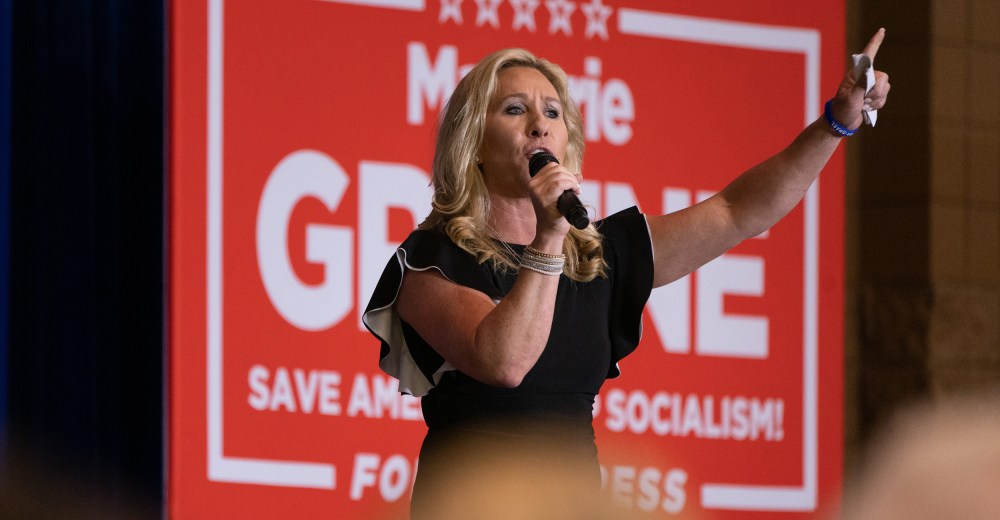Many of us watched a legal hearing last week to determine whether a sitting member of Congress, Marjorie Taylor Greene, R-Ga., helped to incite an insurrection and is therefore constitutionally disqualified from appearing on an election ballot. While her testimony was jaw-clenchingly infuriating for a number of reasons, perhaps the biggest takeaway is that we need to examine how we got here in the first place and how to make sure we never, ever end up here again.
At bottom, the idea is that people who seek to undermine our government shouldn’t be part of it. This seems imminently reasonable.
Constituents in Greene’s district sued to have her declared ineligible to appear on an election ballot by virtue of her alleged actions in support of those who stormed the Capitol and tried to thwart the peaceful transfer of power on Jan. 6, 2021. Section 3 of the 14th Amendment provides that members of Congress who “have engaged in insurrection or rebellion” against the U.S. or “given aid or comfort to the enemies” of the U.S. should not “hold any office.” At bottom, the idea is that people who seek to undermine our government should not be part of it. This seems eminently reasonable.
Greene apparently had one of the worst cases of public amnesia ever recorded, judging by the number of times she used the phrase “I don’t recall” (more than 50) during the daylong hearing. She claimed she could not remember whether she asked Mark Meadows, then the White House chief of staff, about declaring martial law to prevent Joe Biden from becoming president. Texts made public a few days later reveal that Greene texted Meadows:
“In our private chat with only Members, several are saying the only way to save our Republic is for Trump to call for Marshall law. I don’t know on those things. I just wanted you to tell him. They stole this election. We all know. They will destroy our country next.”

Asking the White House chief of staff about declaring martial law, even if you think it is spelled “Marshall,” is something one might reasonably be expected to remember. But Greene’s lack of recollection will likely make it too difficult for the challengers to do what they need to do for this suit to succeed — directly tie Greene to the events of Jan. 6.
Challengers need to show more than that Greene supported the lie that the presidential election was stolen (it was not, even though Greene repeated this falsehood throughout her under-oath testimony) and generally encouraged people to march to the Capitol.
But this is about far more than Greene and her apparent active support of those seeking to undermine the foundations of our democracy. This is about finding ways to reform our democracy so we can keep it. This is about ensuring we do not get saddled with representatives like Greene, not because we may disagree with her policy positions but because she perpetuates lies and supports those who seek to undermine our representative system. We have been holding our current model together with duct tape for too long. It is too late to slap on a new paint job and hope no one notices the doors have come off the car.
Candidates should be elected because they have the best ideas, not the biggest campaign war chests.
Real electoral reform, of course, is not easy, but there are some big changes we can make to fundamentally improve our elections and hence our political system.












